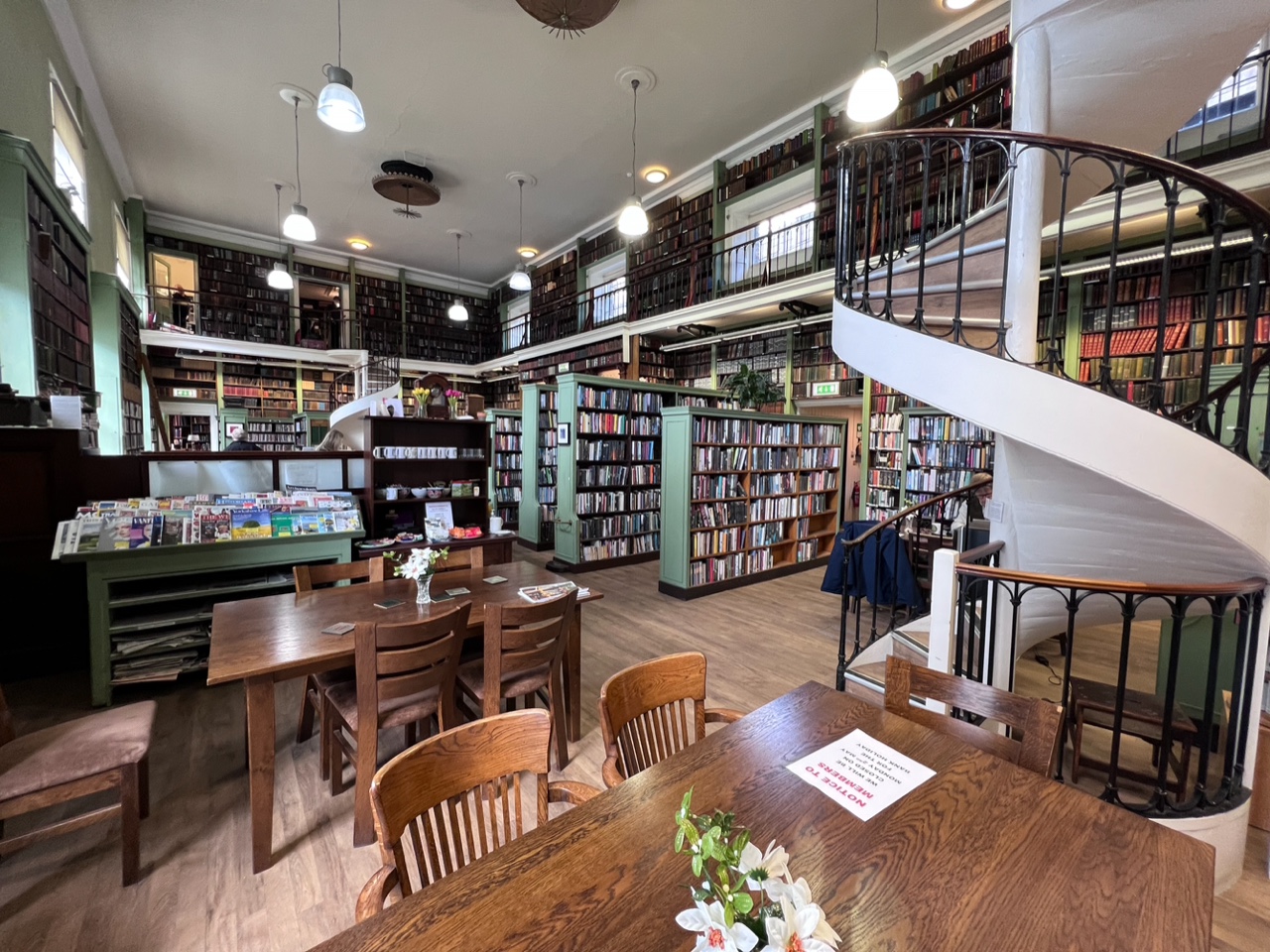
Article
Stan About Town: Leeds Library
Stan Graham
The odds are that you will have walked past The Leeds Library many times without noticing it, the reason is that, until 2008, it was a subscriber library as opposed to a public one, and the number of members limited to 500. There was always a long waiting list so no need to advertise its presence. In 2008 it changed to being a registered charity and so subscription was thrown open to the general public meaning it had to raise its profile to attract new members. I am delighted to tell you that it has been so successful it has taken over the camping shop on the same block in order to expand.
It is hardly a new kid on the block in question having been set up in 1768! It started life in Kirkgate moving to its current location in 1808 when the members bought the whole block, occupying some of the upper floors and renting the street level to shops thus providing extra income. I was told by Ian, the Marketing Manager, that the number of members is now at its highest ever level, even above the pre-pandemic number.
As you would expect the building itself is very impressive, but I was given the VIP tour, Ian obviously mistook me for someone important, which included the rooms not normally seen by even the members. Although the rooms are out of bounds, pardon the pun, the volumes are available to be viewed by the subscribers on request. In the Librarian’s Room there is a treasure trove of books, including the first one purchased for the institution, a handwritten tome on vellum dating from 1483. There is also a First Edition of Charles Darwin’s Origin of Species, complete with spelling mistake on page 20. Ironically the word misspelled was ‘species’.
The reason that there are so many rare editions is that the founders were not without a bob or two and could buy what they wanted, not only that but they had a policy, which still applies today, of not throwing anything away, so every book bought by the library is still in their possession which explains why they need the extra space. There are also lots of volumes stored remotely which need to be integrated into the collection.
The founding fathers were not altogether noble in their choice of reading matter and I was shown, and read a passage from, an example of a racy Victorian novel, of which there were many. Ian calls it the VicLit section, I suppose the part with the Brontes and Austen is the VicChickLit bit.
There was also a selection of ‘Large Books’ which could not be accommodated in the founders’ own homes so were bought by them on behalf of the library. One of the newer examples is by David Hockney, although this was in the public part of the building.
In addition to books there is a large collection of magazines and newspapers, including bound volumes of the Yorkshire Post and Leeds Mercury dating back to the mid 19th Century. Others are awaiting restoring and binding but a volume costs about £1,000 to do so it will take some time.
After reading the above you could be forgiven for thinking that The Leeds Library is stuck in the past, but nothing could be further from the truth. During the pandemic they introduced an e-book library which proved so popular it is being continued, and they are about to launch a programme aimed at helping writers of the future develop their talent. They also provide access to on-line courses.
I finished by asking Ian two questions; first, what are the advantages of joining The Leeds Library, and second, why did he think that it was thriving when information is so easily found on-line.
His answer to the first point was that they provide a very pleasant atmosphere in which to read, study or work, and they have resources such as a link to The London Library where their archive of newspapers, and other works can be accessed. They also have a programme of special events in the main room such as book launches, community events, a film club and talks. Some of these are also open to non-members so check out their website for details.
The answer to the second point was that the main search engines such as Google and Safari, use algorithms suggesting results they think would be of interest based on your previous searches. Researching at the library means that you are exposed to the full range of options so that in the search for what you want, you can stumble across something unexpected which leads you down a totally different rabbit hole revealing a whole new world.
For more details of The Leeds Library please go to https://www.theleedslibrary.org.uk/library-information/about-us/ Ian also told me that it is now possible to pay the annual fee by monthly direct debit.










